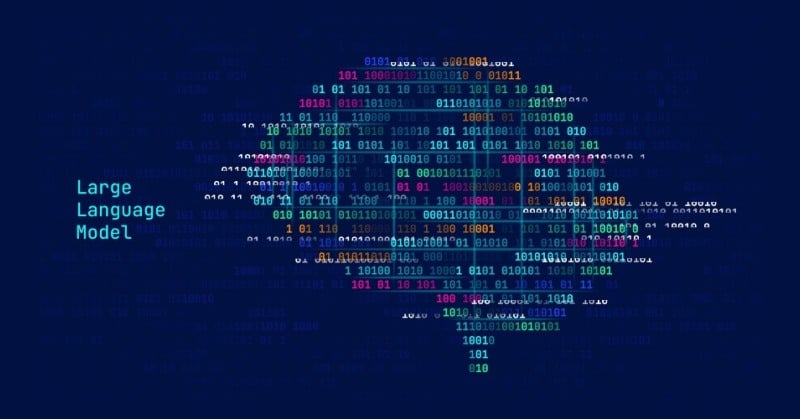From manually inputting data to collaborating with AI-driven tools, the accounting profession has always been shaped by the technology it adopts. Within that context, LLMs promise to not only automate mundane tasks, but also improve how insights are generated and decisions are made by accountants.
*Note: portions of this article’s discussion about generative AI and LLMs are based on a fantastic video from Henrik Kniberg. We highly recommend checking out the full clip here.
When you think about the most common tools used by accountants, Large Language Models are a major leap forward.
By automating routine tasks, enhancing the speed and accuracy of decision-making, and opening up new possibilities for client advisory services, LLMs are poised to reshape the profession in meaningful ways.
While the need for human oversight and challenges like data security remain, the potential of these AI-driven solutions is immense.
In this article, we’ll explore the basics of LLMs, their value and limitations within accounting, and how they’re expected to impact the industry.
The basics: What is generative AI?
Computers are gaining the ability to learn and communicate more like humans.
This branch of computing—where devices produce novel outputs—is known as generative AI.
At its core, generative AI refers to AI that can make entirely new content, whether it be in the format of text, images, audio or video.
Within generative AI, one of the most prominent subsets are Large Language Models (LLMs).
LLMs are powerful AI models designed to understand and generate human-like text.
By analyzing patterns in language, they can produce everything from simple answers to extremely intricate responses, making them helpful for a broad range of tasks.
What exactly is an LLM?
An LLM is like a super smart talking parrot that has read a million books, articles, and websites, and retains everything with near-perfect recall.
It doesn't actually understand what it's saying, but it's really good at predicting what words should come next based on everything it’s read.
Then, it uses patterns from all that information to respond in a way that usually makes sense.
You may be familiar with ChatGPT and have seen what it can generate—those capabilities are powered by the underlying LLM.
As it relates to accounting, LLMs are a form of AI that can assist with generating reports, drafting financial summaries, performing predictive analysis, and even answering complex queries.
Why should accountants care about LLMs?
Accountants have always been tasked with interpreting financial data and providing strategic guidance to their clients.
However, with LLMs, data analysis can be significantly accelerated, allowing accountants to focus far more on higher-value activities such as advisory services.
Here’s how LLMs can directly benefit accountants:
- Enhanced reporting: AI that automatically generates financial reports or summaries based on raw data, saving hours of manual work.
- Faster decision-making: By leveraging AI to interpret and generate insights from vast datasets, accountants can provide faster and more accurate recommendations to their clients.
- Automation of repetitive tasks: We can use AI to handle routine tasks like categorizing transactions or drafting reports, freeing up accountants to focus on higher-level projects.
In short, LLMs empower accountants by elevating their roles from data processors to strategic advisors.
The current landscape: How LLMs are making a difference
Within accounting, we’re already seeing the impact of LLM integrations.
At Truewind, for example, here's just a snapshot of the angles we're taking:
1. We leverage LLMs to offer real-time insights based on financial transactions. Whether it’s analyzing a vendor’s history or determining the correct categorization for a transaction, AI is helping our clients work faster and more accurately.
2. Using LLMs as an assistant to train junior accountants. We believe AI will augment accountants; this applies within the day-to-day work of bookkeeping, and could also apply to education. We're designing our product so that staff accountants can learn more about accounting by simply interacting with the Truewind AI.
3. We use LLMs to build a digital accountant that reads contracts. Much of an accountant's job is to find and read PDF files. It's an important but mundane task that used to require a human's judgment. Now, AI can read those contracts and extract the key terms needed to generate a journal entry.
Challenges and considerations: What are the limitations of LLMs?
While the benefits of LLMs are substantial, it’s also important to understand their constraints.
Like any tool, they come with challenges that accountants must navigate.
Accuracy
One key limitation is that LLMs, despite their impressive ability to generate text, don’t inherently “understand” the content they produce in the way humans do.
They rely on patterns within the data they’ve been trained on, which means they can occasionally produce incorrect or nonsensical information.
Data privacy
LLMs require access to large datasets to function effectively, and ensuring that sensitive financial data remains secure is crucial.
Firms must be cautious about how they implement these tools, ensuring compliance with data protection regulations like GDPR or CCPA.
Lack of human insight
Lastly, while LLMs can automate tasks and streamline workflows, they are not a replacement for human judgment.
Complex decisions, particularly those involving ethical or nuanced considerations, still require human oversight.
In this sense, LLMs are an augmentation tool, not a complete solution.
The future of accounting with LLMs
As LLMs continue to evolve, their integration into the accounting profession will only deepen.
Future iterations of these models will likely become more accurate, better at handling elaborate queries, and more adept at understanding industry-specific nuances.
Accountants who embrace this technology will be well-positioned to offer more value to their clients, focusing on strategic guidance rather than data entry or basic reporting.
Looking ahead, we can also expect LLMs to move beyond just text generation.
As generative AI develops, it may evolve to incorporate deeper predictive analytics, enhanced decision-making capabilities, and even more sophisticated advisory functions.
Ultimately, we expect accountants to increasingly become interpreters of AI-generated insights, and to guide clients based on the advanced recommendations produced by these models.
Interested in learning more about Truewind and our AI-powered solutions? Chat with our team to get started.
Sponsored Content: This article is generously brought to you by one of our valued sponsors. Their support enables us to continue delivering expert insights and the latest industry trends to our dedicated community of accounting professionals.
.png?width=150&height=63&name=TWRlogo-regmark_blueblack%20(1).png)
.png)










Do you have questions about this article? Email us and let us know > info@woodard.com
Comments: